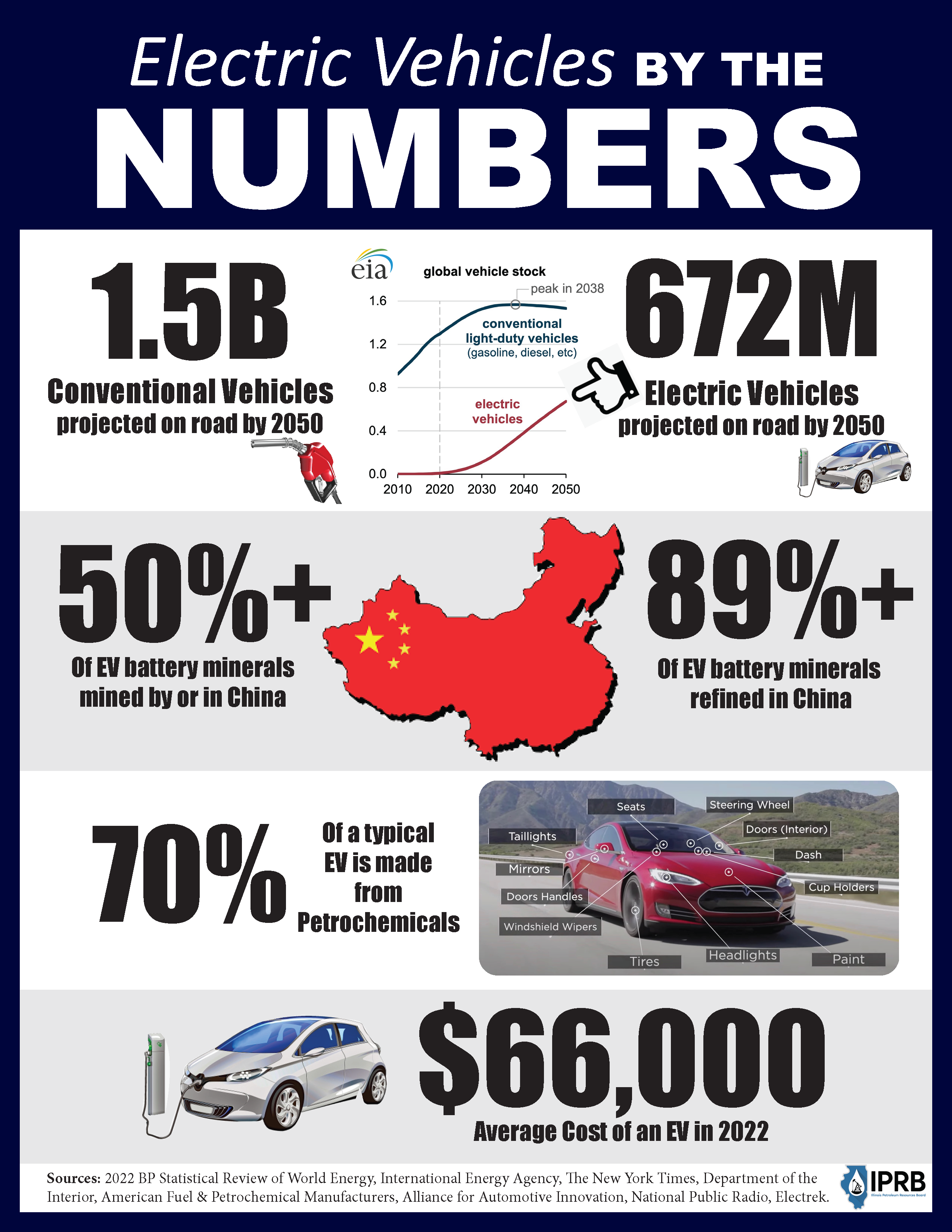Car Dealers' Continued Opposition To Electric Vehicle Mandates

Table of Contents
Financial Concerns and Investment in EV Infrastructure
One of the primary reasons for car dealers' resistance to EV mandates is the substantial financial investment required to adapt their businesses to the new technology. The shift to EVs necessitates significant changes in infrastructure and employee training, creating considerable upfront costs.
-
High upfront costs of EV inventory and specialized service equipment: Electric vehicles often command higher purchase prices than comparable gasoline-powered vehicles, requiring dealers to tie up significant capital in inventory. Moreover, servicing EVs requires specialized tools and training, adding to the financial burden. This increased capital expenditure can impact profit margins, especially in the short term.
-
Need for significant investment in charging infrastructure and trained technicians: To adequately support EV sales, dealerships must invest in installing and maintaining charging stations, a costly undertaking. Furthermore, service technicians need specialized training to diagnose and repair EV components, requiring additional investment in personnel development and training programs. Lack of readily available skilled EV technicians further exacerbates this challenge.
-
Lower profit margins on EVs compared to gasoline-powered vehicles (in some cases): While this is changing, some dealers report lower profit margins on EVs compared to their gasoline counterparts, at least initially. This is partly due to the higher upfront costs and the competitive pricing environment for EVs.
-
Uncertainty about long-term return on investment in EV-related infrastructure: The long-term viability and return on investment for EV infrastructure remain uncertain for many dealers. Factors such as future EV technology advancements, consumer demand fluctuations, and government policy changes all contribute to this uncertainty.
-
Lack of government support for dealer EV infrastructure upgrades: Many dealers argue that sufficient government support for infrastructure upgrades and training programs is lacking. They advocate for more targeted incentives and subsidies to offset the substantial financial burdens of transitioning to EV-centric operations.
Concerns about Consumer Demand and Market Readiness for EV Mandates
Dealers also express concerns about the current market readiness for a rapid shift to electric vehicles. While EV adoption is growing, several factors contribute to apprehension about meeting mandated sales targets.
-
Perceived lack of consumer demand for electric vehicles in certain regions or demographics: Consumer acceptance and demand for EVs vary significantly across geographical regions and demographic groups. Dealers in areas with lower EV adoption rates worry about the feasibility of meeting mandated sales quotas.
-
Range anxiety and concerns about charging infrastructure availability among potential buyers: Range anxiety – the fear of running out of battery power – remains a significant barrier to EV adoption. Insufficient charging infrastructure in certain areas further exacerbates this concern, deterring potential buyers.
-
Need for increased consumer education about the benefits and practicality of EVs: Many potential buyers lack sufficient information about the advantages and practical aspects of EV ownership. Increased consumer education initiatives are vital to dispel misconceptions and promote EV adoption.
-
Uncertainty about future EV technology advancements and consumer preferences: Rapid advancements in EV technology make it difficult to predict future consumer preferences and demand. Dealers hesitate to make significant investments based on potentially short-lived technologies.
-
Concerns that mandated EV sales quotas will outpace actual market demand: Dealers fear that government-mandated sales quotas may outstrip actual consumer demand, resulting in excess inventory and financial losses. A phased approach to EV mandates is often advocated as a more sustainable strategy.
The Role of Existing Dealership Models and Franchise Agreements in EV Sales
The existing structure of the automotive industry, particularly dealership franchise agreements, poses additional challenges to the swift implementation of EV mandates.
-
Existing dealership models and franchise agreements may not be well-suited to the needs of EV sales and service: Traditional dealership models, designed for gasoline-powered vehicles, often lack the infrastructure and expertise to effectively sell and service EVs. This necessitates substantial adaptations and potential conflicts with existing franchise agreements.
-
Potential conflicts between manufacturers' EV sales targets and dealers' existing business models: Manufacturers are under pressure to meet stringent EV sales targets, potentially creating conflicts with dealers whose business models are heavily reliant on gasoline-powered vehicles.
-
Concerns about the impact of EV mandates on franchisee profitability and autonomy: Dealers worry that EV mandates could negatively impact their profitability and reduce their autonomy in managing their businesses.
-
Legal challenges related to the enforcement of EV sales mandates within existing franchise agreements: The enforcement of EV sales mandates may face legal challenges from dealers contesting their validity within existing franchise agreements.
-
Negotiation difficulties between manufacturers and dealers regarding EV sales targets and incentives: Reaching agreement between manufacturers and dealers on realistic EV sales targets and appropriate incentive structures often proves challenging, adding to the tensions surrounding EV mandates.
Lobbying Efforts and Political Influence
The automotive industry has engaged in significant lobbying efforts to influence government policies on EV mandates.
-
Significant lobbying efforts by automotive industry groups against stringent EV mandates: Powerful industry groups exert considerable political influence to shape government regulations related to EV adoption, often advocating for less stringent mandates.
-
Use of political influence to shape government policies related to EV adoption: The automotive industry utilizes its political influence to advocate for policies that support a slower and more gradual transition to electric vehicles.
-
Arguments against government intervention in the market for electric vehicles: Industry lobbyists often argue against government intervention in the market, emphasizing the importance of market forces in driving technological innovation and consumer choice.
-
Focus on promoting alternative solutions or slower transitions to electric vehicles: Lobbying efforts often focus on promoting alternative solutions, such as hybrid vehicles or biofuels, as a way to delay or mitigate the impact of stringent EV mandates.
Conclusion
The opposition to electric vehicle mandates from car dealers stems from a complex interplay of financial concerns, market uncertainties, and the constraints imposed by existing business models. Addressing these concerns requires a collaborative approach involving manufacturers, dealers, governments, and consumers. Government support for infrastructure upgrades, training programs, and consumer education initiatives are crucial. Innovative financing solutions, such as leasing models for charging infrastructure, can also help alleviate the financial burden on dealers. Furthermore, open dialogue and transparency between all stakeholders are essential for finding common ground and achieving a successful transition to electric mobility.
Understanding the multifaceted challenges behind car dealers' resistance to EV mandates is essential for policymakers and stakeholders alike. Further discussion and transparent dialogue are necessary to overcome these hurdles and accelerate the adoption of electric vehicles. Let's find common ground to navigate the challenges of electric vehicle mandates and pave the way for a sustainable automotive future.

Featured Posts
-
 Biles Celebra Una Gimnasta Repite Su Iconico Salto
May 07, 2025
Biles Celebra Una Gimnasta Repite Su Iconico Salto
May 07, 2025 -
 Can Julius Randle Elevate The Timberwolves Playoff Performance
May 07, 2025
Can Julius Randle Elevate The Timberwolves Playoff Performance
May 07, 2025 -
 Nowa Ksiazka O Konklawe Premiera W Warszawie
May 07, 2025
Nowa Ksiazka O Konklawe Premiera W Warszawie
May 07, 2025 -
 Utah Hockey Clubs Chances Analyzing The 2025 Nhl Draft Lottery
May 07, 2025
Utah Hockey Clubs Chances Analyzing The 2025 Nhl Draft Lottery
May 07, 2025 -
 Randles Physicality A Boon For Minnesota A Burden For La
May 07, 2025
Randles Physicality A Boon For Minnesota A Burden For La
May 07, 2025
Latest Posts
-
 Vodni Festival Songkran Tajske Ulice Spremenjene V Bojisca Z Vodo
May 07, 2025
Vodni Festival Songkran Tajske Ulice Spremenjene V Bojisca Z Vodo
May 07, 2025 -
 0 2
May 07, 2025
0 2
May 07, 2025 -
 Spomin Na Dragega Ohranjanje Spomina Na Ljubljeno Osebo
May 07, 2025
Spomin Na Dragega Ohranjanje Spomina Na Ljubljeno Osebo
May 07, 2025 -
 Pocivaj V Miru Besede Utehe Za Druzino In Prijatelje
May 07, 2025
Pocivaj V Miru Besede Utehe Za Druzino In Prijatelje
May 07, 2025 -
 Izrazanje Sozalja Besede Tolazbe Za Zalujoce
May 07, 2025
Izrazanje Sozalja Besede Tolazbe Za Zalujoce
May 07, 2025
